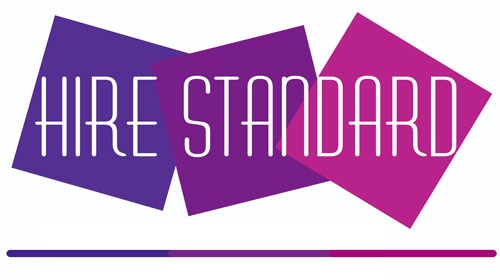CEO Chat
Helen H., CEO of
Hire Standard Staffing
Posted April 2018
We are sitting down with Helen and chatting about how clients should decide on what kind of hiring model they need, temp-to-hire, direct hire or just temporary help.
Q: Are a lot of clients aware of the differences between a temp-to-hire and a direct hire?
A: The “temp to hire” or “contract to hire” option can be effective in certain situations, but this process is not equal to (and often not better than) directly hiring. Certain clients understand the differences and are savvy in deciding which method will deliver the best results. But the challenge we see now is client decision-making based on inaccurate or untimely criteria. For instance, when skilled candidates are plentiful and jobs are scarce, companies can try out a temp/contractor without much risk — essentially using that time as a paid probationary trial period. However, the current employment market does not readily support that model. With plentiful opportunities for job seekers, skilled candidates are exercising their option to wait until a company is willing to make a commitment to them, rather than restricting their search availability during a temporary or contract job.
Q: How do clients typically decide on whether they need a direct hire, temp-to-hire or maybe just temporary help?
A: We ask tons of questions during the first phase of our client involvement. Some clients know they have a position to “fill” and just want to get started quickly, so we might take a multi-disciplinary approach…relieve their immediate pain while we search for the perfect person. Other clients are not certain what they need and may only be working from a position description. We are able to guide them toward the best option for their situation, which will drive our process and help them get the best results. And sometimes, it can get tough when the client is adamant about taking one road and we know it is a dead end. In some cases, we have to step back and let them fail before we can succeed.
Q: Do clients have a misconception regarding the costs for each type of hiring method? Maybe they think one method is less expensive than another which may not be quite accurate?
A: This would be a great question for a client survey… let’s ask them!
Q: Does budget seem to take priority regarding a hire? Do clients understand the concept of “you get what you pay for”?
A: “You get what you pay for” is a guiding principle at Hire Standard and was a core reason to start our company. Does every company understand that? No. Does budget play a part for most companies? Yes. Everyone knows about the concept of “value” but not everyone agrees on what that means. We believe it means getting the very best for your hiring dollar. Great talent is never acquired cheaply. Personalized, client-driven service costs money because it is highly labor-intensive. Companies and candidates can expect we will be here when they need us again if we charge fairly for our services.
Q: How do you think clients determine how much a position should be worth?
A: There is plenty of free salary data out there. Combined with historical salary information for their open position, companies can arrive at a salary range pretty easily. We help strategize how to attract and keep their new employee and compensation is certainly part of that picture. Ironically, we find that it is not the most important factor to the candidate, particularly when they are comparing multiple offers. Job seekers have access to the same information companies do, and most are doing their homework, so they know what they are worth. But company culture, job stability, and benefits are often just as important to the job seeker as the salary. Bringing these competing sets of priorities together is one reason to have a partner in the process, and I’m proud to say that is something we do well.
Q: Have you ever worked as a temp yourself?
A: Great question! I did apply for a temporary position once and ended up getting hired by the company before I ever began temping. I would not have gotten the job if I had been unwilling to temp, but I was certainly glad it worked out the way it did. Being open-minded about how to get hired can present great opportunities, but it takes some guts. I remember going into that interview thinking “What am I doing?” and coming out of the interview thinking “I’m really glad I took that chance”.

